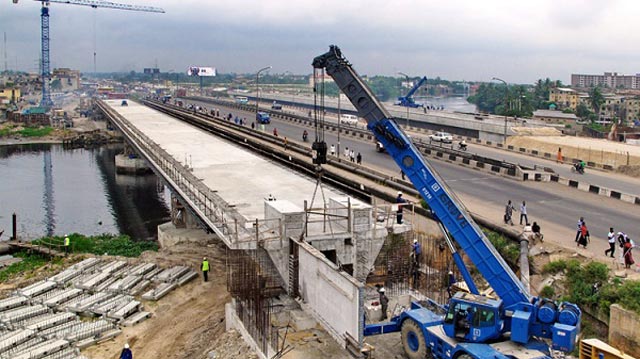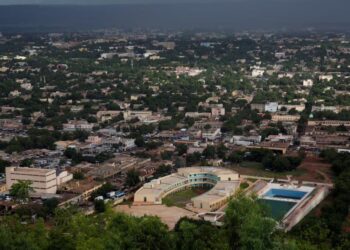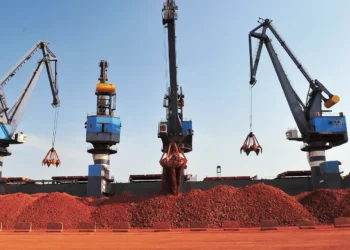The largest African economy, Nigeria, is characterised by its dependence on oil exports, which significantly influences government revenue. The country has a diverse economic landscape, including agriculture, services, and telecommunications.
Nigeria, through the years, has been making efforts to address economic challenges and promote sustainable development. Initiatives include economic diversification away from oil, improvements in infrastructure, investment in agriculture, and measures to enhance the business environment. Policymakers continue to work towards reducing unemployment, fostering innovation, and attracting foreign investment to support long-term economic stability.
However, there are persistent challenges, such as corruption, which historically included issues such as bribery, embezzlement, and nepotism in both the public and private sectors; inadequate infrastructure affecting sectors such as health, transportation, energy, and telecommunications; high levels of poverty; and unemployment. Economic diversification efforts are underway to reduce reliance on oil and promote a more sustainable and inclusive growth trajectory.
Nigerian economy in the past 2 years
Nigeria has achieved significant economic milestones, including being one of Africa’s largest economies and a key player in the continent’s economic landscape. The country has made efforts to diversify its economy, enhance infrastructure, and attract foreign investment. However, challenges like oil dependency amongst other natural resources in the country, predictable inflation, rising insecurity, and unemployment persist, requiring ongoing efforts for sustained economic growth.
Since the COVID-19 pandemic, the country’s economic growth has decreased, as has the GDP per capita, due to “monetary and exchange rate policy aberrations, increasing fiscal deficits due to lower oil production and a costly fuel subsidy programme, increased trade protectionism, and external shocks. Weakened economic fundamentals led the country’s persistent inflation to reach a 17-year high of 25.8% in August 2023, which, in combination with sluggish growth, is leaving millions of Nigerians in poverty,” says a World Bank report.
Nigeria faced economic challenges, most especially in 2022, comprising fluctuating oil prices, inflation, and unemployment. Economic performance in 2024 could change if many policies are fully signed and executed.
In recent years, there have been reports of companies leaving the country and establishing just distribution centres or warehouses in Nigeria. Although many of the companies to be mentioned in this article are said to have announced their exits before May 2023,.
Since the announcement of the exit by these companies, many could predict that it would take virtually a year for some to start packing, but to the surprise of many, four months later, after the most notable Unilever announced its exit, GlaxoSmithKline plc, popularly known as GSK, a company responsible for manufacturing that researches and develops a broad range of innovative products in three primary areas of pharmaceuticals, vaccines, and consumer healthcare, announced its production process in Nigeria.
Other multinational companies that have left the country include Sanofi, a French pharmaceutical multinational that subtly announced on November 8, 2023, its exit from Nigerian operations. The company said it has appointed a third-party distributor to handle its commercial portfolio of medicines starting in February 2024.
Equinor, which left the country after over 30 years in Nigeria, announced that it had reached an agreement to sell its Nigerian business to Chappal Energies. The closing of the transaction, which is subject to the satisfaction of certain conditions, including all regulatory and contractual approvals, led to Equinor effectively exiting the country. Also, Procter & Gamble( P&G), a multinational consumer goods corporation, has announced its exit. It is one of the world’s largest and most diversified consumer goods companies, with a wide range of products in categories such as beauty, grooming, health care, fabric care, and home care.
These mentioned companies are among the few that have operated in Nigeria for decades and were top contributors to Nigeria’s fast-moving consumer goods (FMCG) market. Some of the companies listed their reasons to leave the country, while others withheld theirs.
Some of the challenges faced by local and multinational manufacturers in Nigeria before 2023 had been power crises, constant devaluation of the naira, and forex availability coupled with other stringent policies of the government.
According to the Nigerian Tribune, “following President Bola Ahmed Tinubu’s inauguration on May 29, 2023, many things changed, including inflation on all fronts. In his inaugural speech, the President announced fuel subsidy removal, which has now affected Nigerians of all social strata, and directed the Central Bank of Nigeria (CBN) to begin monetary policy reforms.” The Nigerian Tribune also reports that the business-based Investors and Exporters (I&E) window replaced the central bank’s formerly various exchange rate windows. However, the lack of forex continues despite the CBN’s devaluation and unification of foreign currencies. All of these arguably affected multinationals whose businesses largely depended on forex availability, and the purchasing power of Nigerians was greatly eroded by rising inflation.
Challenges
Nigeria continues to face many social and economic challenges, such as:
- High unemployment rates, which contribute to social and economic instability. Unemployment is a significant concern in Nigeria. The country has faced challenges in providing employment opportunities or alternatives for its growing population.
- Insecurity, which affects economic growth as it discourages investment, raises unemployment, and reduces government income,.
- Inadequate infrastructure, such as power supply and transportation, poor road networks, and inadequate public transportation, which hinder the movement of goods and people, and insufficient water supply and sanitation infrastructure, can affect public health and quality of life.
- Persistent inflation deteriorates purchasing power and affects the cost of living. Inflation in Nigeria has been a trouble, impacting price stability and purchasing power. Factors such as fluctuations in global oil prices, high food prices, and structural issues contribute to inflationary uncertainties in the country. The government employs monetary and fiscal measures to manage inflation, but it remains a challenge that requires ongoing attention for economic stability.
- Heavy reliance on oil revenue makes the economy vulnerable to fluctuations in oil prices; variations in oil prices impact government revenue, foreign exchange earnings, and overall economic stability. Overemphasis on oil revenue underscores the need for economic diversification to promote a more sustainable and resilient economy. Corruption at various levels hampers economic growth and deters foreign investment in the sector.
Addressing these challenges in 2024 requires comprehensive and sustained efforts from both the government and private sectors to identify the challenges, formulate a policy to tackle them, monitor them, and deliver accountability to move the country forward.
Prospects for 2024
Many financial and economic experts have projected that Nigeria’s economy will rise to 3.3 percent from 2.9 percent in 2023. The World Bank projected that Nigeria’s per capita income amongst other sub-Saharan African regions will return to its pre-pandemic level by 2024–2025. The nation’s economy is predicted to gradually improve in the upcoming years, according to the bank’s Global Economic Prospects report for January 2024 projection. This is because of the government’s implemented macro-fiscal reforms.
According to the report, “The Sub-Saharan African region, including Nigeria, experienced a slowdown in economic growth to an estimated 2.9 percent in 2023, primarily due to country-specific challenges such as higher input prices for businesses in Nigeria.”
The country’s President, Bola Ahmed Tinubu, who was sworn into office on May 29, 2023, having won the February 2023 presidential election, has vowed to turn the economy around. He recently signed the N28.7 trillion 2024 appropriation bill into law at the Presidential Villa Abuja, which can be a great opportunity to move the already flattened economy towards an increased GDP per income but still needs implementation by the stakeholders.
For many years, Nigeria has been underperforming compared to how it has been projected to be by economic experts. For economic growth to be restored to how it has been projected, public goods should be handled by the officeholders. Implementing an effective economic policy requires proper execution and monitoring. Key steps include robust communication with stakeholders, efficient resource allocation, regular assessment of policy outcomes, and flexibility to adapt based on economic shifts. Fostering collaboration between government, businesses, and the public is crucial for sustained economic growth. There are also hopes that various projects underway or completed, such as the Dangote oil refinery, will contribute to the country’s economic recovery.
Addressing a troubled economy like Nigeria’s often involves a combination of fiscal and monetary policies. It needs to tackle unemployment, provide initiatives to stimulate economic growth, promote entrepreneurship, and enhance vocational training programmes to ensure inclusive economic development. There are also needs to enforce strategies to diversify the economy, reduce dependency on specific sectors, promote a more balanced and robust economic structure, and allocate resources for infrastructure development, education, and likewise innovation to stimulate economic growth and resilience.
Finally, implementing sound economic policies, investing in infrastructure, promoting innovation, fostering a business-friendly environment, and addressing social inequalities can contribute to economic recovery. Additionally, collaborating with international partners and organisations may provide support and resources that would create more jobs for its citizens, which would also reduce the rates of unemployment in the country.
ـــــــــــــــــــــــــــــــــــ
This article expresses the views and opinions of the author and does not necessarily reflect the views of Qiraat Africa and its editors.



























































